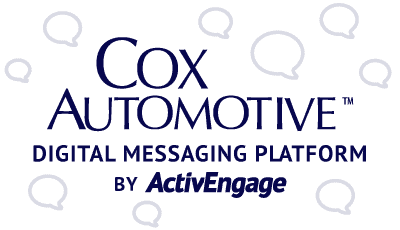Advertising doesn’t work like it used to, and reaching customers takes more than a flashy commercial. Millennials, particularly, are highly resistant to ads, having grown up in a digital environment. You’ll have to work for their attention if you want them to make purchases at your dealership.
Consumers want connection, and they seek out brands committed to their needs. Customer experience is the driving force in buyer decisions. In one survey, 86% of shoppers were willing to pay more for customer service, prioritizing it over price or product quality, even when the experience was 100% online.
What’s Your Conversational Definition?
What does conversational commerce mean to you? Whether you reach the customer by phone, email, text, or online chat like Facebook Messenger, the goal is connection. E-commerce shouldn’t be less personal than face-to-face interaction. Meeting consumer needs is the best opportunity for brands to bolster sales. Given the five main stages of the buyer journey, you need to make your commerce conversational at each. Making online commerce conversational is how you gain consumer trust, make sales, and retain loyalty.
Awareness of Need
When someone realizes they need a vehicle or repair, they may browse your online store or try to connect with your company via Facebook or Instagram. If they’re trying to learn whether your dealership can solve their problem, you must be able to speak conversationally to them.
Research
When consumers look for a solution to their pain point, they research different options. Whether the consumer compares your dealership to your competitors or evaluates vehicle options on your site, be available to answer their questions.
Chatbots are like voice assistants, providing info like make, model, trade-in value, or pricing. They need to use natural language and be conversational to retain engagement. When your auto-buyer needs more detailed information, it’s crucial to have a human rep available. If the interaction fails to be conversational enough, your sales lead might bounce.
Evaluation
Online vehicle shoppers ready to make purchases often know what make or model they want. Still, they’re also looking at recommendations, new or used options, and warranties or service plans. Make your dealership policies and vehicle rundowns readily available, allowing the consumer to decide what fits their needs. Facebook Messenger is a popular choice for conversational commerce, since it flows naturally from Facebook ads and social media engagement.
Conversion or Buying Decision
This step is where the personalized touch of conversational commerce can be most vital. Your customer might need reassurance that online information is correct before they will make purchases. They may want to schedule an appointment for viewing, a test drive, or vehicle delivery. A consumer might double-check that the car they saw online is on the lot, or they may need to confirm financing or trade-in values. Apps that use conversational commerce are crucial for this part of the buyer journey.
Satisfaction Evaluation and Returning Customers
After the consumer makes a purchase, they’ll evaluate whether it solved their problem. Is the vehicle satisfactory for the price? Will they make recommendations about your dealership to others or tell them to steer clear?

A good car-buying encounter makes your consumers praise you to others. If they need another vehicle later, they’ll go back to whoever best served their needs. A bad experience will result in bad reviews, hurting your reputation and future sales. Always follow up to ask if your customers need anything else or if they’d like to leave feedback.
Omnichannel Marketing
In 2015, Chris Messina pioneered the phrase “conversational commerce” to describe the act of "utilizing chat, messaging or other natural language interfaces to interact with people, brands or services." As mobile commerce trends continue to normalize interaction through smartphones and tablets, this technology is becoming more vital.
Not too long ago, most people wouldn’t be comfortable using a digital voice assistant like Siri. Like other new features, conversational commerce is becoming essential to omnichannel marketing in today’s sales environment. To succeed, e-commerce brands must use every messaging technology option and standardize the experience across all of them.
Online Shopping Bots vs. Conversations: Examples and Definitions
It seems counterintuitive to use chatbot apps when conversational commerce is all about a human touch. But while Artificial Intelligence in messaging apps and chat apps can’t replace a person’s intuition and authenticity, they can perform simpler tasks with ease. Is a consumer looking for a specific model or searching Kelly Blue Book values? Bots can find, offer, and compare information with a few commands. Facebook Messenger is leading the way forward in this with easy integrations for brands.
What is Conversation?
Conversational commerce is about give-and-take, both parties responding in reasonable, expected ways. A chatbot app with a limited range of messaging responses makes a customer feel unheard. Upgrade your AI bot, or move the conversational commerce interaction to human reps as soon as the AI reaches its limit.
Seamless Integration
Consumers want to move between conversational commerce interactions and messaging apps without conflict or interruption. Use as many integrations as possible. Don’t use Messenger OR Whatsapp—use both. If the interaction feels jarring, the customer will leave your site or messaging app for good.
Better Chatbot API
To serve consumers with bot apps, don’t use outdated Artificial Intelligence. Improve your conversational commerce ability with a quality chat service. Use data tracking technology to pick up conversational commerce interactions where they left off and provide your consumers with the interaction they want. ActivEngage makes this easy with human-centric customer service and cutting-edge messaging integrations.
Chatbot Examples
Many brands use chatbots with unique messaging voices to assist their customers. From bots performing basic info retrieval to those with more a conversational commerce focus, people are growing accustomed to chatbots in brand interactions. Functioning partly as mascot and partly as a virtual assistant, chatbot apps bring a humanized touch to automated transactions.
How to Use App Bots: Conversation Examples
When consumers ask for information, they want a conversational reply. They want the correct pages, recommendations, information, price, or model, but not dumped in a list. Even when the customer knows it’s a bot, they respond better when you make the commerce conversational. The advantage of bots is their quick responses—consumers prefer bots over humans for simple messaging, especially if the answer comes in less than 30 seconds.
What’s a Good Conversation Example?
Customer: Can you help me find a 4-wheel-drive truck?
Bot: Sure! What’s your price range?
C: About 20k
B: Great! Let me see what we’ve got on the lot!
B: It looks like we have a 2015 4WD/AWD Nissan Frontier for $21,250. Would you like to learn more about this vehicle?
Commerce Examples
What makes commerce conversational and not just transactional is investment. Answer your customers’ questions by listening to their concerns without sidestepping them, and they’re more likely to make purchases from your brand. Either a human or a bot can do this, but you must correctly identify and address the concern. If a customer asks to see 4-wheel-drive vehicles, that’s all you should offer them—or risk losing their trust.
What is a Conversational Growth Strategy?
You can enhance your customer service, sales, and advertising strategy with conversational commerce. Interactive messaging with chatbots to answer questions and chat window popups on your main site is a great place to start. As you add messaging integrations and connect with more consumers, your customers will make purchases more readily.

ActivEngage is the perfect partner for your conversational growth strategy moving forward. Our highly-trained reps can help auto dealership brands with sales leads, customer service, fixed ops, and retention. With our unique combination of automated and managed functions, your customers will always feel heard. Bring your conversational commerce to the next level by partnering with ActivEngage.








